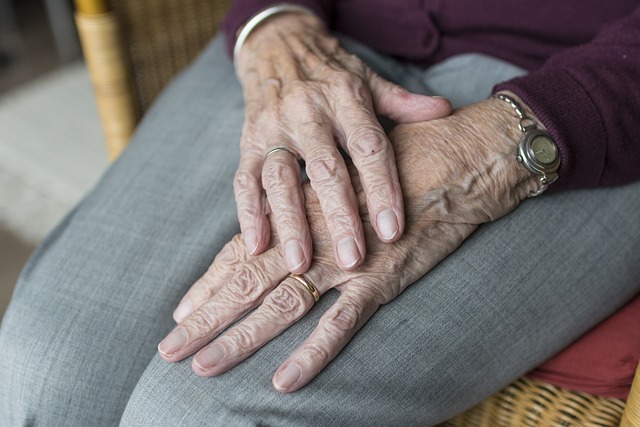Elderly companion services play a vital role in the lives of individuals with dementia by offering personalized companionship that caters to their social and emotional needs. These services are designed to engage clients in activities tailored to their interests and abilities, helping maintain their sense of identity and promoting mental well-being within familiar and comfortable settings. Trained companions are skilled at recognizing behavioral changes and can promptly communicate with healthcare professionals or family members when necessary intervention is needed. Additionally, these services provide assistance with daily tasks to ensure a predictable and secure living environment. These attentive caregivers enhance the quality of life for dementia patients by delivering empathetic, consistent care, which facilitates aging in place with dignity. Moreover, elderly companion services offer crucial respite for primary caregivers, easing their burden and providing reassurance that their loved ones are receiving both safety and meaningful interaction. As a component of holistic dementia care plans, these services are increasingly recognized as essential for the elderly population dealing with dementia, supporting both their quality of life and independence through specialized support services.
Exploring the landscape of dementia care reveals a vital role for elderly companion services, offering tailored support to those navigating the challenges of dementia. This article delves into these services, elucidating their integral function within comprehensive dementia support systems designed for the elderly. We will traverse the diverse benefits and availability of such companionship solutions, ensuring a nuanced understanding of how they enhance daily living and offer respite to both patients and caregivers. Join us as we explore the multifaceted contributions of elderly companion services in dementia care.
- Understanding the Role of Elderly Companion Services in Dementia Care
- Comprehensive Overview of Dementia Support Services for the Elderly
- Navigating the Benefits and Availability of Elderly Companion Services for Dementia Patients
Understanding the Role of Elderly Companion Services in Dementia Care

Elderly companion services play a pivotal role in the dementia care ecosystem, offering companionship and support to individuals living with dementia. These services are designed to address the social and emotional needs that often accompany cognitive decline. Trained companions provide a consistent presence, engaging with clients through meaningful activities tailored to their interests and abilities. This not only helps to maintain a sense of self but also promotes mental well-being by fostering an environment of familiarity and comfort. The companions are adept at recognizing subtle behavioral cues and can alert professional caregivers or family members when medical intervention or additional care may be necessary. They also assist with daily routines, ensuring a stable and secure living situation for those with dementia. Through their attentive and compassionate care, elderly companion services enhance the quality of life for individuals with dementia, allowing them to age in place with dignity and companionship. Additionally, these services offer respite for primary caregivers, enabling them to manage their responsibilities more effectively while providing peace of mind that their loved ones are not only safe but also engaged in meaningful interactions. This aspect of dementia support is increasingly recognized as integral to the holistic care plan for individuals with dementia.
Comprehensive Overview of Dementia Support Services for the Elderly

The elderly facing dementia have a unique set of challenges that require specialized support services to maintain their quality of life and independence for as long as possible. These services are designed to address the complex needs of individuals with dementia, offering a holistic approach to care. Elderly companion services are a cornerstone of this support system, providing companionship and social interaction, which are crucial for mental well-being. These services ensure that seniors have a consistent presence in their lives, offering emotional support and assistance with daily activities. Additionally, memory care programs are tailored to the cognitive stages of dementia, offering structured activities and personalized care plans that adapt as the disease progresses. These programs often include specialized therapies, such as music or art therapy, which can help stimulate cognitive function and enhance emotional responses. Home health aides and nursing services also play a vital role, assisting with medication management, safety monitoring, and providing a secure environment for the elderly to thrive. Through these comprehensive dementia support services, the elderly can receive the necessary care to navigate the complexities of dementia with dignity and compassion.
Navigating the Benefits and Availability of Elderly Companion Services for Dementia Patients

Elderly companion services play a pivotal role in supporting individuals with dementia, offering both practical assistance and companionship to enhance their quality of life. These services are tailored to meet the unique needs of dementia patients, providing everything from daily care and medication management to engaging activities that cater to their cognitive abilities. The benefits of such services are manifold, as they not only offer respite for family caregivers but also help maintain the social connections and routines that are crucial for persons with dementia.
When exploring the availability of elderly companion services, it’s essential to consider the various options, ranging from in-home assistance to specialized adult day care programs. These services are designed to be flexible, adapting to the changing needs of dementia patients as their condition progresses. Accessibility varies depending on geographical location and healthcare systems, with some regions offering robust support networks while others may have more limited resources. Regardless, the goal remains the same: to provide compassionate care that fosters a safe, supportive, and dignified living environment for those affected by dementia. With a growing emphasis on comprehensive dementia care, elderly companion services are increasingly recognized as an integral component of the support system for seniors facing this challenging condition.
The interplay between elderly companion services and dementia care is a critical component in enhancing the quality of life for those affected by dementia. This article has shed light on the multifaceted nature of support services available, highlighting their role in providing both practical assistance and emotional support to the elderly. Understanding the benefits and availability of these services empowers caregivers and families to make informed decisions about the care their loved ones receive. As we continue to innovate and expand these vital services, it is clear that they remain an indispensable resource in the dementia care landscape, offering a lifeline to many. Embracing and utilizing elderly companion services is not just a choice but a necessity for those navigating the challenges of dementia.




